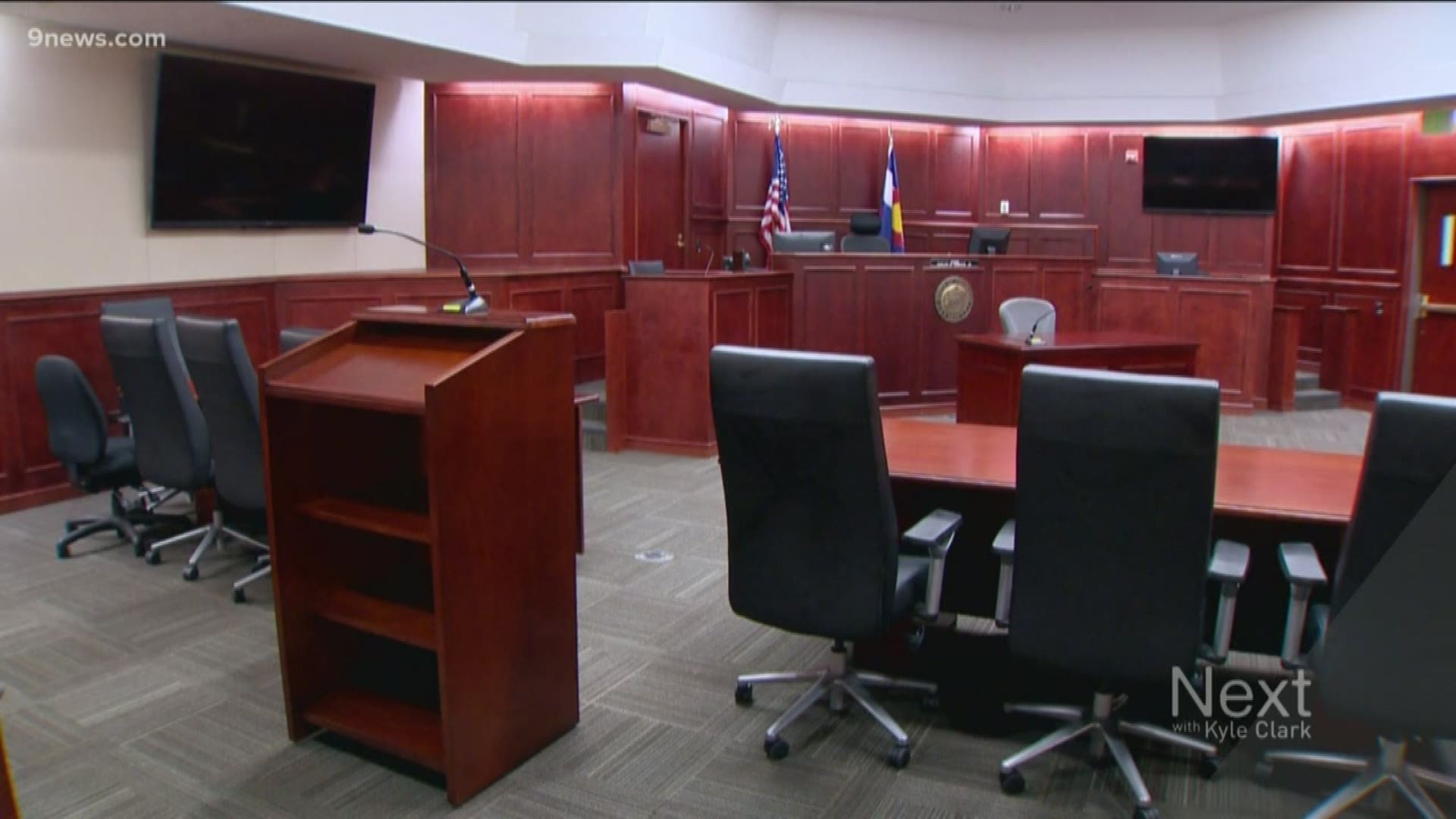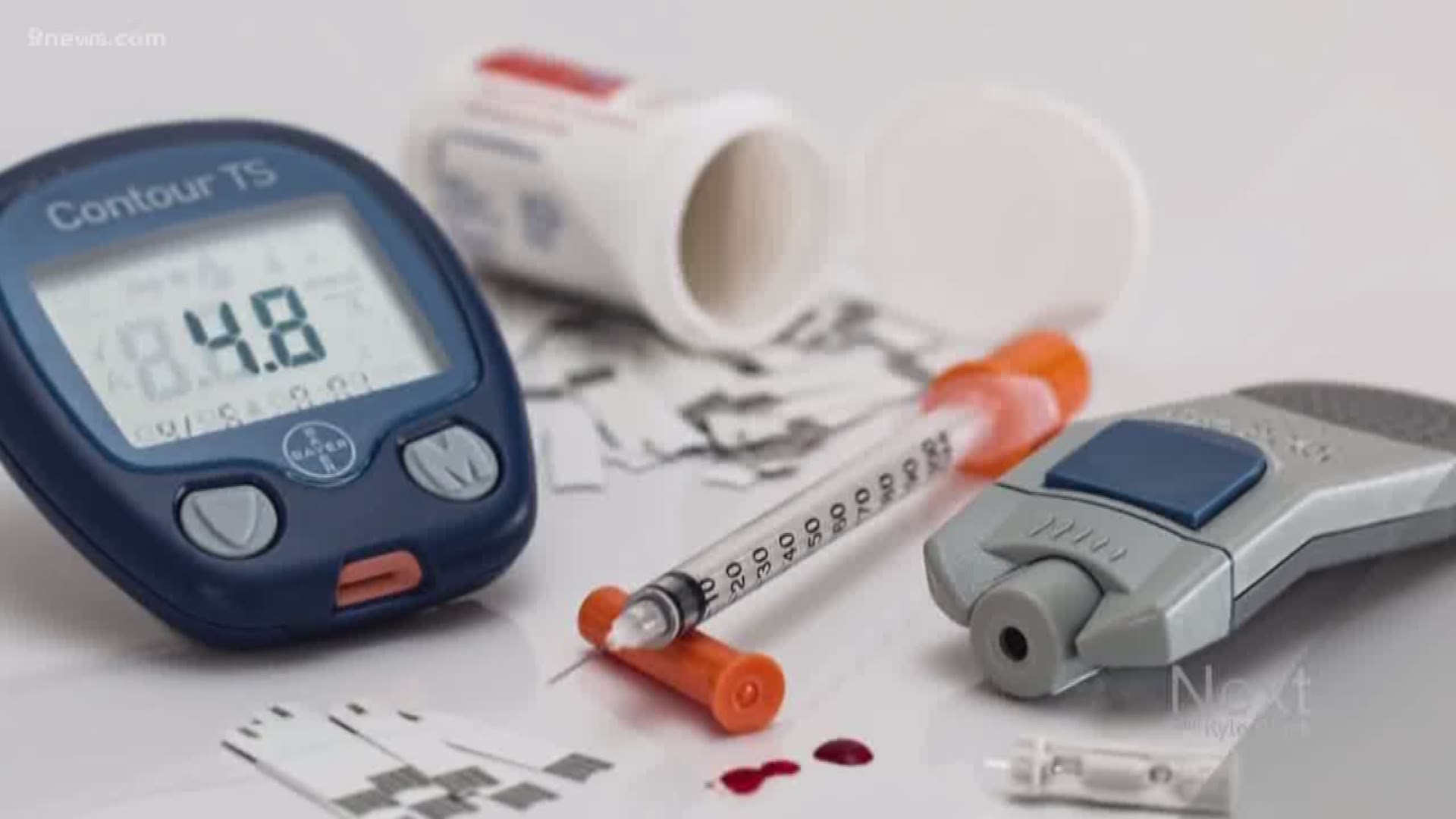DENVER — New year, new laws.
Multiple new laws passed by Colorado’s Democrat-controlled House and Senate and signed by Gov. Jared Polis (D) went into effect on January 1, 2020 following a busy 2019 legislative session.
Here’s a look at what's new:
HB19-1177: Extreme Risk Protection Orders
Better known as the red flag law, this was one of the most contentious items to arise from the 2019 legislative session.
This bill essentially allows a judge to temporarily seize the weapons of someone deemed a threat to themselves or others.
Dozens of counties around the state, including Weld County, have passed resolutions declaring themselves second amendment sanctuary counties, meaning they don't plan to enforce the new law.
RELATED: What are red flag gun laws?
RELATED: Colorado father who lost his son to suicide believes the red flag law could have made a difference
The red flag law was written into the law books on April 12, but couldn't be used for the first until January 1, 2020.
Per the language in the red flag law, it requires that courts develop a standard petition form by January 1, 2020 -- and that law enforcement develop their policies by that same date.
It also means that families and law enforcement agencies can petition the courts for extreme risk protection orders beginning in 2020.
You can read the full text of the law here: http://bit.ly/37fu7L1
HB 19-1267: Out-of-network healthcare services
This law seeks to prevent medical providers from sending so-called “surprise medical bills” directly to patients.
The legislation comes in part from a 9Wants to Know investigation that exposed this practice, which involves patients who visit facilities in-network with their health insurance nevertheless receiving unexpected out-of-network medical bills.
Opponents of the bill have argued it could drive emergency room doctors out of the state, but the bill’s sponsors have said they don’t believe it will have this impact.
Read the full text of the bill here: http://bit.ly/2rtFjEq
HB19-1216: Reduce insulin prices
The new law puts a cap on what a patient pays for insulin -- $100 per 30-day supply for people with private insurance and insurance through Connect for Health Colorado (the state doesn't have the power to change health care plans run by the federal government).
That's a change for some people who pay as much as $600 a month for insulin.
Colorado is the first state to have such a law. State Rep. Dylan Robers (D-Avon) said that since it was signed, about 20 legislators from other states have contacted him to ask about implementing it, as well.
Illinois signed its own insulin cap law in 2019. That law goes into effect in 2021.
If patients run into problems with their pharmacies and suspect the cap isn't being enforced, the concern can be reported to:
Division of Insurance, Colorado Department of Regulatory Agencies
1560 Broadway, Suite 850
Denver, CO 80202
Phone: 303-894-7499 | 1-800-930-3745
Read the full text of the bill here: https://bit.ly/2rKy5vR
HB19-1267: Penalties for failure to pay wages
Under this new law, employers that fail to pay wages or meet the state minimum wage can now be charged with theft – something that can range from anything from a petty offense to a felony. Previously, employers convicted of refusing to pay wages would be guilty of an unclassified misdemeanor.
Read the full text of the bill here: http://bit.ly/34TxyFu
HB19-1234: Regulated marijuana delivery
This new law allows for permits to deliver medical marijuana starting in 2020 and decriminalizes marijuana delivery (one delivery per day), as long as it's allowed in the local jurisdiction. Deliveries can't be made to college campuses. Recreational delivery can begin in 2021.
Read the full text of the bill here: https://bit.ly/2ZGHm4G
HB19-1230: Marijuana hospitality establishments
"Marijuana hospitality establishments" can exist under this law. People can use medial or recreational marijuana inside these establishments, with local jurisdiction approval. Restaurants can apply, but not if they have a liquor license, as well.
Marijuana is an exception to the "Colorado Clean Indoor Air Act" under this law.
Read the full text of the bill here: https://bit.ly/2MM0nxq
B19-1014: Retail food establishments inspection and suspension
This bill modifies provisions of the Food Protection Act in the following ways:
- It clarifies the definition of “imminent health hazard”
- Removes the minimum amount of a civil penalty and sets the maximum at $1,000
- Creates a new civil penalty process for inspection violations
- Requires the system to communicate inspection results only be revised through the triennial stakeholder process
Read the full text of the bill here: http://bit.ly/2Svmrjw
HB19-1210: Local government minimum wage
This law allows local governments to establish a minimum wage for people working in their jurisdiction. Previous state law prohibited local governments from enacting minimum wage laws separate from those of the state.
Under the new law, local governments are limited in how the minimum wage can increase: either $1.75 per hour or 15% of the state’s minimum wage, whichever is greater.
Colorado’s minimum wage will increase to $12 per hour starting on January 1, 2020.
Read the full text of the bill here: http://bit.ly/2tRpzvL
HB19-1328: Landlord and tenant duties regarding bed bugs
This bill requires tenants to notify landlords about potential bedbugs as soon as possible, and that landlords must inspect the offending units within 96 hours of receiving notice.
In addition, landlords are responsible for all of the costs associated with mitigating bed bugs.
Read the full text of the bill here: http://bit.ly/34X6ghz
HB19-090: Peer-to-peer motor vehicle sharing program
This bill establishes regulations for peer-to-peer car sharing programs. These programs – like the Turo app – essentially let drivers rent cars directly from their owners for a fee.
The legislation requires record keeping for transactions in these programs, emergency numbers for roadside assistance and insurance coverage.
Read the full text of the bill here: http://bit.ly/2EWYxFK
HB19-1283: Disclosure of insurance liability coverage
This bill requires that car insurance customers and their insurers disclose information regarding automobile liability insurance coverage to individuals making claims.
This information includes the name of the insurer, the name of the insured party, the limits of the liability coverage and a copy of the policy. Failure to do so could result in damages of $100 a day beginning 31 days after this information is first requested.
Read the full text of the bill here: http://bit.ly/2ZsZkaB
HB19-1086: Plumbing inspections ensure compliance
This bill changes the requirements for renewing and reinstating plumber licenses. For instance, beginning on May 1, 2021, persons renewing their plumbing licenses need to have completed eight hours of continuing education for every year that has passed since their last renewal.
It also mandates the State Plumbing Board adopt new rules for continuing education requirements and standards by July 1, 2020.
Read the full text of the bill here: http://bit.ly/2sdsM8I
SUGGESTED VIDEOS | Next with Kyle Clark




